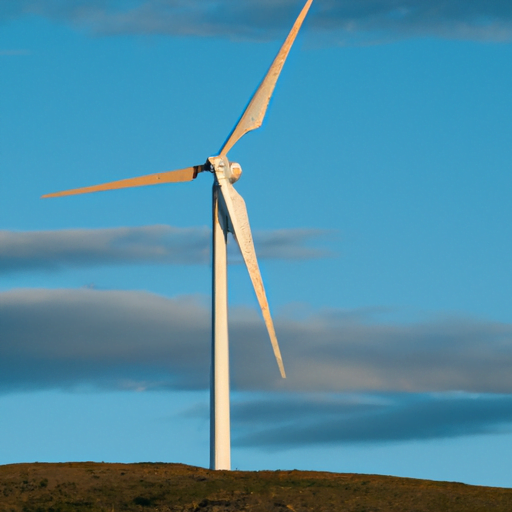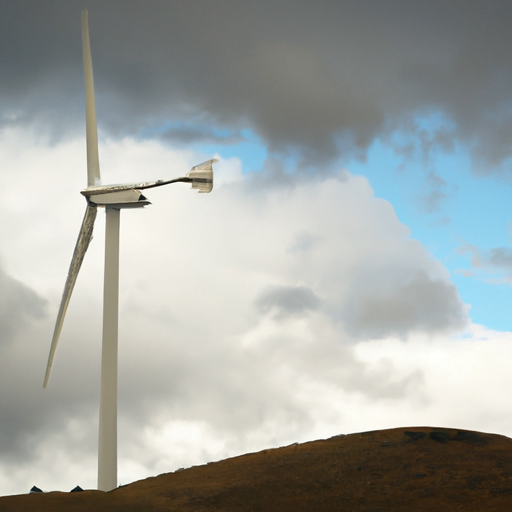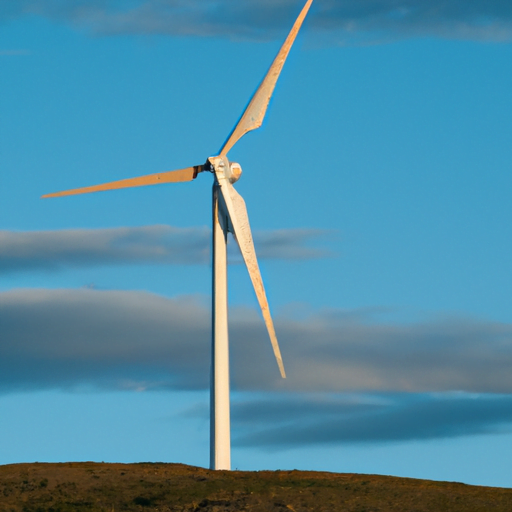So, have you ever wondered if heat pumps can function off-grid? I mean, it would be pretty cool if you could still have a reliable heating and cooling system even if you’re living off the grid, right? Well, the good news is that heat pumps are actually quite versatile, and they can definitely work off-grid.
When we talk about off-grid living, we’re referring to living in a location where you’re not connected to the main power grid. This means you need to generate your own electricity, which can come from sources like solar panels, wind turbines, or even a generator. And here comes the interesting part – heat pumps can be powered by these alternative energy sources.
Heat pumps work by transferring heat from one place to another, either to warm up your indoor space or cool it down. The great thing is that they can work with both electricity and alternative energy sources, making them a great option for off-grid living. But hold on, there’s more to it – in our article, we’ll dive deeper into the specifics of how heat pumps function off-grid and the different factors you need to consider. Stay tuned!

What is Off-Grid Living?
Off-grid living refers to living without being connected to the traditional electricity grid. Instead, individuals or communities generate their own power through renewable energy sources, such as solar panels, wind turbines, or geothermal systems. Off-grid living promotes self-sustainability and reduces reliance on fossil fuels. While it can offer numerous advantages, it also presents unique challenges that individuals must overcome.
Understanding Off-Grid Living
Living off-grid means being self-sufficient when it comes to power generation and consumption. It requires careful planning, conscious energy usage, and the use of alternative energy sources. Off-grid living allows individuals to detach themselves from the grid’s limitations and enjoy the freedom of generating their energy, thereby reducing their carbon footprint.
Advantages of Off-Grid Living
Off-grid living has several advantages. First and foremost, it provides energy independence. By generating their power, individuals are no longer susceptible to power outages or fluctuations in utility bills. Off-grid living also helps reduce dependence on non-renewable energy sources, which are harmful to the environment. Living off-grid allows individuals to embrace sustainable practices and lead a more eco-friendly lifestyle. Additionally, off-grid living can reduce monthly energy costs in the long run.
Challenges of Off-Grid Living
While off-grid living offers numerous benefits, it does come with its share of challenges. One of the primary challenges is the upfront cost of installing the necessary infrastructure, such as solar panels or wind turbines. These initial expenses might be significant but can often be offset by long-term savings on utility bills. Additionally, off-grid living requires careful planning and knowledge to ensure the system can meet the energy demands throughout the year. Seasonal variations, maintenance, and servicing also pose challenges that individuals must address to ensure the reliability and efficiency of their off-grid systems.
Can Heat Pumps Function off-Grid?
In recent years, heat pumps have gained popularity as a cost-effective and energy-efficient heating and cooling solution. But can heat pumps function off-grid? The answer is yes, with the right setup. Heat pumps rely on electricity to operate, but by utilizing renewable energy sources, they can operate entirely off-grid.
How Heat Pumps Work
To understand how heat pumps can function off-grid, it is essential to first grasp how heat pumps work. Heat pumps work by transferring heat from one location to another. In heating mode, they extract heat from the outside air, ground, or water and transfer it into the indoor space. In cooling mode, the process is reversed, and heat is extracted from indoors and expelled outside.
Power Source for Heat Pumps
Traditionally, heat pumps rely on electricity from the grid to operate. However, off-grid heat pump systems utilize alternative power sources such as solar, wind, or geothermal energy. These renewable energy sources provide the electricity needed to power the heat pump, allowing it to function independently of the grid.
Limitations of Traditional Heat Pumps
While traditional heat pumps are highly efficient, they rely on electricity from the grid, which may not be available or practical in off-grid living situations. This limitation can make traditional heat pumps unsuitable for those seeking complete energy independence. However, advancements in technology have opened up new possibilities for off-grid heat pump systems.

Off-Grid Heat Pump Systems
Off-grid heat pump systems integrate renewable energy sources to power the heat pump. This integration allows individuals to enjoy the benefits of heat pumps while living off-grid. Several options are available for off-grid heat pump systems, each utilizing different renewable energy sources:
Utilizing Renewable Energy Sources
The key to off-grid heat pump systems is harnessing renewable energy sources. Solar power, wind power, and geothermal energy are the primary options for powering off-grid heat pumps. Each renewable energy source offers distinct advantages and considerations, depending on the location and climate.
Solar-Powered Heat Pump Systems
Solar-powered heat pump systems utilize solar panels to convert sunlight into electricity. The electricity generated can power both the heat pump and other household appliances. Solar power is a highly accessible and abundant energy source, making it an excellent choice for off-grid heat pump systems. It is crucial to assess the solar potential of the location to determine the number of solar panels required for an efficient and reliable system.
Wind-Powered Heat Pump Systems
Wind-powered heat pump systems utilize wind turbines to generate electricity. Wind turbines convert the kinetic energy of the wind into electrical power, which can be used to operate the heat pump. Wind power is an excellent option for off-grid heat pump systems in areas with consistent and sufficient wind resources. However, it is essential to consider the wind patterns and average wind speeds in the location to determine the viability of a wind-powered system.
Geothermal Heat Pump Systems
Geothermal heat pump systems rely on the constant temperature of the earth to provide heating and cooling. These systems utilize underground pipes to transfer heat to or from the ground, depending on the season. Geothermal energy is a reliable and consistent source for off-grid heat pump systems. However, installation can be costly and may require specific geological conditions to be effective.
Benefits of Off-Grid Heat Pump Systems
Off-grid heat pump systems offer several benefits for individuals seeking both energy independence and sustainable living:
Energy Independence
One of the significant advantages of off-grid heat pump systems is the ability to achieve energy independence. By harnessing renewable energy, individuals can generate their power, reducing or eliminating reliance on the traditional electricity grid.
Reduced Carbon Footprint
Off-grid heat pump systems utilize renewable energy sources, such as solar or wind power, which are clean and sustainable. By employing these sources, individuals can significantly reduce their carbon footprint, contributing to a greener and more sustainable future.
Lower Operating Costs
While the installation of off-grid heat pump systems can involve upfront costs, individuals can experience long-term savings on energy bills. By generating their electricity, individuals are no longer subjected to rising utility costs or fluctuations in prices.
Utilizing Abundant Renewable Resources
Off-grid heat pump systems allow individuals to tap into abundant and renewable resources, such as solar and wind energy. These sources are readily available in various locations, providing a consistent power supply for the heat pump.
Considerations for Off-Grid Heat Pump Systems
When considering an off-grid heat pump system, several key factors must be taken into account to ensure the effectiveness and reliability of the system:
Sizing and Capacity Planning
Proper sizing and capacity planning are crucial for off-grid heat pump systems. Determining the heating and cooling load requirements of the space, as well as considering seasonal variations, is essential in selecting the appropriate system capacity.
Battery Storage and Backup Systems
To ensure a continuous power supply, off-grid heat pump systems often require battery storage and backup systems. These systems store excess electricity generated by renewable energy sources, providing power during periods of low or no energy generation.
Seasonal Variations
Off-grid heat pump systems must be designed to accommodate seasonal variations in energy generation. For example, solar-powered systems should consider the potential reduction in sunlight during winter months and adapt accordingly to ensure a consistent power supply.
Maintenance and Servicing
Regular maintenance and servicing are essential for maintaining the efficiency and longevity of off-grid heat pump systems. Periodic inspections, cleaning, and repairs should be carried out to ensure optimal performance.
Off-Grid Heat Pump Installation
The installation of an off-grid heat pump system requires careful planning and professional expertise. Here are the key steps involved in the installation process:
Consulting with Experts
Consulting with experts in off-grid heat pump systems is crucial to ensure the system is designed and installed correctly. Professionals can assess the energy needs, location, and climate to determine the most suitable system for the specific requirements.
Choosing the Right System
Selecting the right off-grid heat pump system involves considering factors such as the available renewable energy sources, location, and budget. Experts can provide guidance on choosing the most appropriate system to meet the desired heating and cooling requirements.
Location and Site Assessment
A thorough site assessment is necessary to determine the suitability and viability of an off-grid heat pump system. Factors such as available space, solar exposure, wind patterns, and soil conditions are evaluated to optimize system performance.
System Design and Integration
Based on the site assessment and energy needs, the off-grid heat pump system is designed, including the integration of renewable energy sources and the necessary infrastructure to power the heat pump.
Installation and Commissioning
Once the system design is finalized, the installation process begins. Professional installers carry out the installation and commissioning of the off-grid heat pump system, ensuring its correct operation and performance.
Off-Grid Heat Pump Efficiency
Efficiency is a vital factor in off-grid heat pump systems to maximize energy utilization and reduce operating costs. Here are a few considerations for enhancing efficiency:
Energy Efficiency Ratings
When selecting a heat pump, it is crucial to consider its energy efficiency rating. Higher-rated heat pumps generally provide better energy efficiency, resulting in lower energy consumption and reduced operating costs.
Optimizing System Performance
Regular monitoring and optimization of the off-grid heat pump system can greatly enhance its performance. This includes adjusting temperature settings, scheduling, and fine-tuning the system to match the heating and cooling requirements.
Insulation and Weatherization
Proper insulation and weatherization of the building can significantly enhance the efficiency of the off-grid heat pump system. By minimizing energy loss, the heat pump can operate more efficiently, reducing overall energy consumption.
Cost Considerations
When considering off-grid heat pump systems, several cost considerations come into play:
Upfront Investment
The initial investment for an off-grid heat pump system can be significant due to the costs associated with infrastructure installation. Individuals must factor in the costs of renewable energy sources, such as solar panels or wind turbines, as well as the installation and commissioning of the heat pump system.
Long-Term Savings
While the upfront costs may seem high, off-grid heat pump systems can provide significant long-term savings on energy bills. By eliminating or reducing reliance on the grid, individuals can avoid rising utility costs and fluctuations in prices.
Government Incentives and Rebates
In many regions, governments offer incentives and rebates to promote the adoption of renewable energy systems, including off-grid heat pump systems. These incentives can help offset the initial investment costs, making off-grid living more accessible and affordable.
Off-Grid Living with Heat Pumps: Case Studies
Several successful off-grid heat pump projects serve as examples of the viability and effectiveness of these systems:
Real-World Examples
One example is a remote cabin located in a forested area. The cabin owner installed a solar-powered heat pump system to provide both heating and cooling. The system utilizes solar panels to generate electricity and power the heat pump. This off-grid system allows the cabin owner to enjoy comfort and energy independence in a remote location.
Another example is a rural farmhouse that installed a wind-powered heat pump system. The farmhouse utilized the consistent wind resources in the area to generate electricity through wind turbines. The electricity powers the heat pump system, allowing the farmhouse to enjoy heating and cooling while being completely off-grid.
These real-world examples demonstrate the success and benefits of off-grid heat pump systems in various locations and conditions.
Conclusion
Living off-grid is a viable and sustainable choice for those seeking energy independence. Off-grid heat pump systems allow individuals to enjoy the benefits of heat pumps while maintaining self-sufficiency. By harnessing renewable energy sources such as solar, wind, or geothermal energy, individuals can power their heat pumps and reduce reliance on the traditional electricity grid. Off-grid heat pump systems offer numerous advantages, including energy independence, a reduced carbon footprint, lower operating costs, and the utilization of abundant renewable resources. While off-grid living presents challenges, careful planning and consideration can lead to successful installations and sustainable living. By embracing off-grid heat pump systems, individuals can pave the way towards a greener and more sustainable future.




